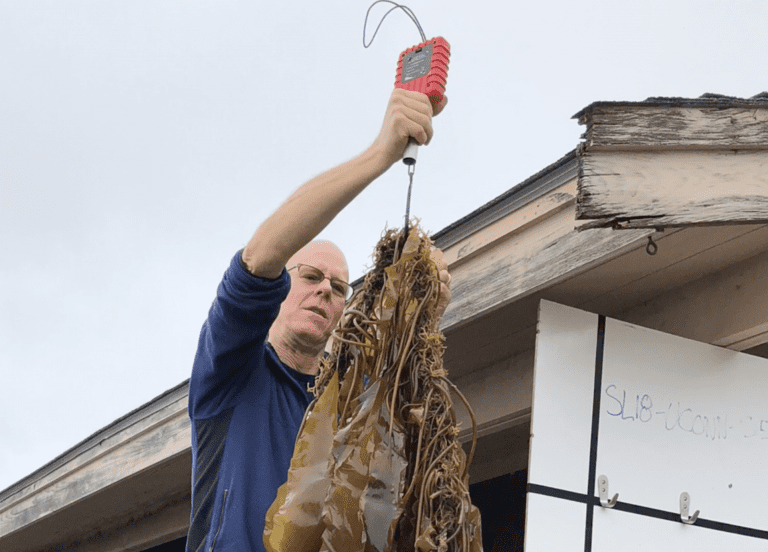WHOI Advancing a Seaweed Solution to Develop New Kelp Strains

As the state of the Earth’s climate remains at the forefront of the minds of policymakers, scientists, and economists, seaweed farming is being viewed as a sustainable and efficient way to boost economies, provide nutritious food and diversify ocean life. A leader in ocean science, Woods Hole Oceanographic Institution (WHOI) is embarking on a study of how new seaweed strains could further enhance the burgeoning seaweed industry and offer solutions to some of the world’s pressing challenges. This research is funded in part by World Wildlife Fund (WWF) with support from the Bezos Earth Fund.
Aquaculture already supplies more than half of the world’s seafood consumed by humans, with seaweed totaling 27% of annual global aquaculture tonnage. WHOI’s Scott Lindell, a research specialist in aquaculture technology, leads the research project to develop seaweed strains for commercial uses. The project will test the performance of superior sugar kelp strains on farms and measure the yield and quality of the new strains.
With funding over the next 2.5 years from WWF, the team plans to conduct two breeding and harvesting seasons from 2021 - 2023, on commercial partners’ farms in the Northeast US. By identifying different strains, they will match specific traits to meet targeted needs, such as taste and texture. Partners will take part in breeding and nursery practices with the goal of amplifying and testing new kelp varieties jointly developed by WHOI and the University of Connecticut with funding from the U.S. Department of Energy.
The overarching goal is to examine genetic and environmental influences on kelp strains, compare the strains by “traits” (color, taste, shelf life) to meet the industry and consumer needs, and train hatchery operators on how to grow “seed” year-round. Long-term, the hope is for strong industry partnerships, and to create faster, better growing strains.
Seaweed farming does not rely on resources associated with traditional agriculture - fertile land, energy intensive fertilizers, and freshwater availability. According to Lindell, it’s easy to grow, beneficial for ocean ecosystems, and an efficient, low-carbon way to produce nutritious food for a growing population, both human and animals. Additionally, research suggests our future homes and vehicles could one day be powered by fuel made from farmed seaweed.

WHOI scientist Scott Lindell weighing kelp that was recently harvested from a research farm in New England. Photo by Charles Yarish. Copyright © Woods Hole Oceanographic Institution.
“Much of this new-found interest is fueled by seaweeds’ climate-friendly qualities and the restorative properties associated with seaweed farms; absorbing excess carbon and nitrogen, buffering coastal pH, providing habitat and sheltering coastlines,” Lindell added.
“WWF’s commitment to this research provides critical support,” Lindell said. “With this timely investment, we plan to collaborate with the kelp farming industry at a critical stage of its development and help them adopt modern plant breeding methodologies and hatchery techniques.”
“Seaweed farming produces highly nutritious foods with very few inputs relative to terrestrial farming, and it improves the quality of water in which the farms operate,” says WWF’s Paul Dobbins, Senior Director of Impact Investing and Ecosystems Services and Seaweed Lead. “The results of WHOI’s research will help farms advance their productivity, leading to greater environmental and societal gains. We are encouraged by the direction of this research and look forward to seeing progress over the next two growing seasons.”

